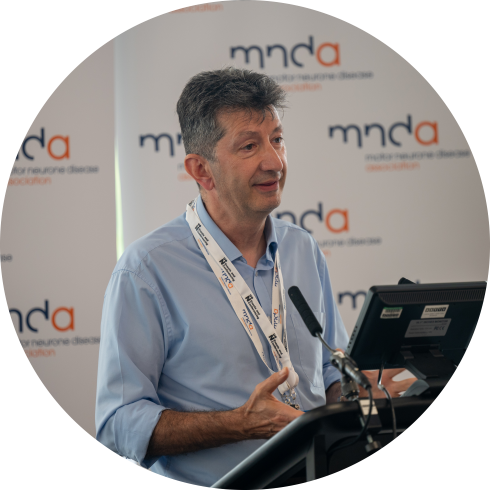Testing the use of Lithium Carbonate in people living with MND with a change in the UNC13a gene.

Principal Investigator: Prof Ammar Al-Chalabi
Lead Institution: King's College London
MND Association Funding: £619,665*
Funding dates: June 2020 - July 2025
*Supported by the Greendale Charitable Foundation, P F Charitable Trust, the Payne-Gallwey Charitable Trust, the Mason le Page Charitable Trust, Hollick Family Foundation and Tony Hopper's friends and family.
About the project
PRELUDE (Personalised treatment with Lithium Carbonate for Unc13a Determined MND) is a major new international, multi-centre, phase III clinical trial to investigate the effect of lithium carbonate on survival in people living with MND who have a change in a gene called UNC13a. Multiple centres from across the UK (led by Prof Ammar Al-Chalabi at King’s College London), Europe and Australia will participate. If successful, this trial could provide an effective new treatment to one in every six people with MND.
This trial is part of the MAGNET (Multi-arm, Adaptive, Group-sequential trial NETwork) platform trial. This is the first international platform trial focused on finding effective treatments for MND. It will test multiple treatments simultaneously. You can read more about the MAGNET trial here.
About Lithium Carbonate
Lithium carbonate has been trialed previously in people living with MND. Unfortunately these trials did not reach their primary endpoint, meaning that the results couldn't show that there was benefit of taking the treatment for people living with MND. However more recent analysis of these trials has shown that there could be potential benefit for people who have MND and have a change in the UNC13a gene. A change in the UNC13a gene is known to be associated with the prognosis and symptoms of MND. Lithium carbonate will now be trialed again just in people living with MND who have this specific gene change.
What could this mean for MND research?
This project is testing lithium carbonate in people living with MND who have a change in the UNC13a gene. It is hoped that lithium carbonate will be able to slow disease progression and and improve survival for people living with MND with this gene mutation.
Resources
Take part in this research
This research study is currently recruiting participants. Click the button below to find out more about the study and if you are eligible to take part.
Project code: 80-110-950
